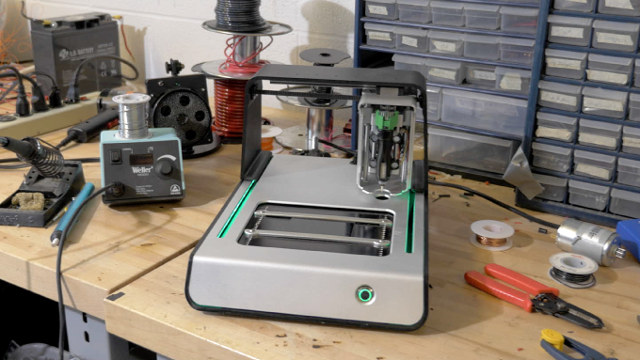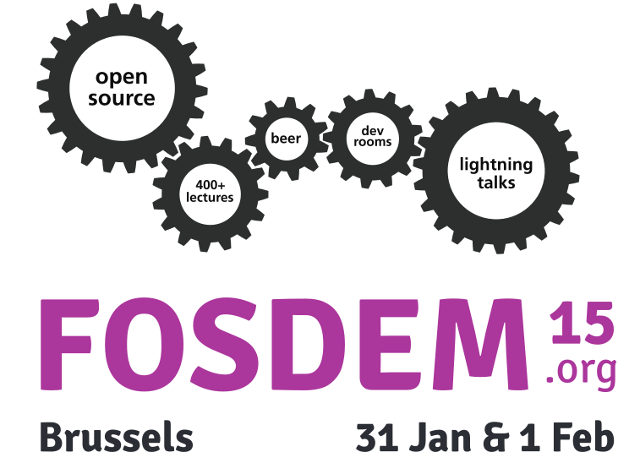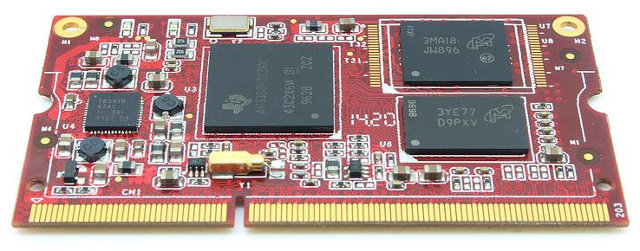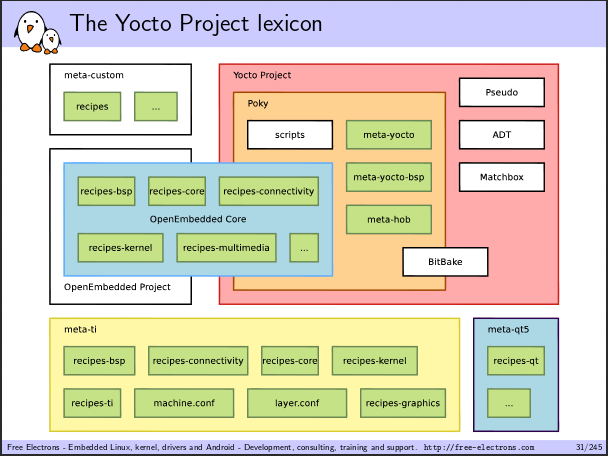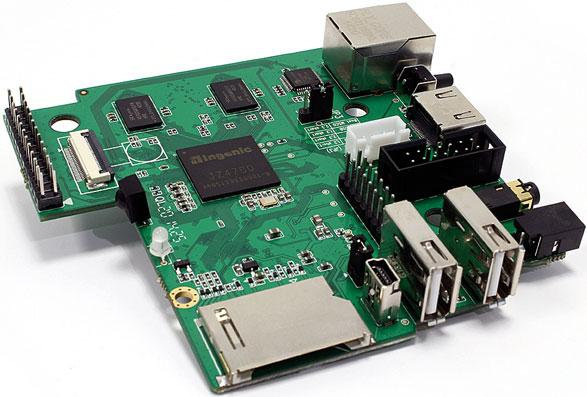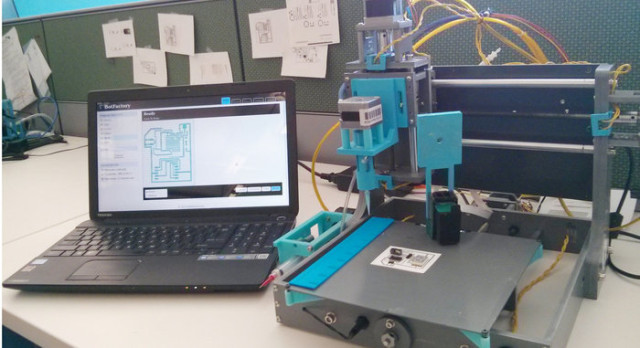Google has now announced that students applications for Google Summer of Code (GSoC) are now open. Students can get paid up to $5,500 to work on various open source projects selected for the event. Fewer companies have been accepted this year, and even big names like the Linux Foundation and Mozilla got their application rejected. There are still over 137 open source projects to work on including: MinnowBoard project – Potential software projects for the Intel Atom embedded board include making low speed I/O buses more accessible via intermediate open source libraries (e.g. SMBus/PMBus/Wiring libraries), and improving the open source firmware. lowRISC SoC project – Potential projects: Schematic Viewer for Netlists (SVG/JavaScript), open source FPGA compilation flow using Yosys, accessing the OpenCores ecosystem, etc… BeagleBoard.org – Lots of project ideas relying on the BeagleBone Black board, dealing with Linux kernel support for embedded devices and interfaces, ARM processor support in […]
Voltera V-One is a Low Cost PCB Printer and Solder Paste Dispenser (Crowdfunding)
The traditional hardware development cycle involve sending PCB Gerber files to a manufacturer, wait a few days (or weeks), get the boards back, find and fix bugs, send a new revision of the gerber files to the manufacturer and so on. This wastes a lot of time, so PCB printers capable of handline single and dual layer PCBs have started to see the light of the day, for example with BotFactory Squink. The latter can also do pick and place, but costs over $3,500. Luckily if you’d like something cheaper, Voltera V-One will do many of the same tasks, for but for only $1,500. Voltera V-One specifications: Minimum Trace Width – 8mil (~0.2mm) Minimum Passive Size – 0603 (0402 for solder paste) Minimum Pin-to-Pin Pitch – 0.8mm (0.5mm for solder paste) Resistance – >12 mOhm/sq @ 70um height Max Heated Bed Temperature – 250C Heated Bed Ramp Rate – ~2C/s […]
FOSDEM 2015 Schedule – January 31 – February 1 2015
FOSDEM (Free and Open Source Software Developers’ European Meeting) takes place every year during the first week-end of February. This year the developer-oriented event expects to bring over 5000 geeks to share ideas and collaborate on open source projects. Contrary to most other events, it’s free to attend, and you don’t even need to register, just show up. FOSDEM 2015 will take place on January 31- February 1 in Brussels. There will be 551 sessions divided into 5 keynotes, 40 lightning talks, 6 certification exams, and with the bulk being developer rooms and main tracks, divided into 7 main tracks this year: Languages, Performance, Time, Typesetting, Hardware, Security and Miscellaneous. I’m not going to attend, but it’s still interested to see what will be talked about, and I’ve concocted my own little virtual program out of the main tracks and developers’ rooms. There’s a few minutes overlap between some talks […]
Snappy Ubuntu Core is an IoT Linux Distribution for ARM and x86
Canonical has announced a version of Ubuntu specifically designed for IoT devices running Linux, with a low hardware requirements, and a new package manager called snappy, replacing apt-get for this version of Ubuntu, which provides simpler, faster, and more reliable updates, stronger security, and allows roll-backs in case something goes wrong. Easy firmware updates are something missing in most connected device, which means they are more vulnerable to potential hackers, but with snappy security updates should be able to make it regularly, so that if something like heartbleed occurs again, you know your router, home automation gateway, connected washing machine, or robot will be soon patched automatically. Let’s go through the hardware requirements first: Processor – 600 MHz processor (ARMv7 or greater, or x86) System Memory – 128 MB RAM or greater (The system itself uses 40 MB RAM) Storage – 4GB flash / storage for factory reset and system […]
TI Sitara based GOEMBED Systems-on-Module and Single Board Computers with BeagleBone Capes Support
GOEMBED is a startup funded by engineers previously working for Embest Shenzhen, based in Longhua district in Shenzhen, and specialized in embedded boards and modules. They currently have board and modules based on Freescale i.MX6 and Texas Instruments Sitara processors, but I’ll focus on the TI products in this post, including one of their single board computers that supports BeagleBone capes. CM3352 and CM3358 Systems-on-Module CM335x Series modules specifications: SoC – Texas Instruments Sitara Cortex A8 AM3352 @ 800 Mhz or AM3358 @ 1.0 GHz System Memory – 512 MB Micron DDR3 chip Storage – 2 to 4 GB eMMC depending on model PMU – TI TPS65910A3 Dimensions – 67.5 x 36.5 mm Temperature Range – Commercial: 0° to 70° C or Industrial: -40° to 85° C The modules are said to support Linux 3.x, Android 4.x, Ubuntu, Angstrom, Debian, WinCE 6.0/7.0, and uCOS operating systems. SBC335x Single Board Computers […]
Free Electrons Publishes Yocto & OpenEmbedded Training Materials
Free Electrons is a small (9 people) engineering company focusing on embedded Linux / Android, and open source software, which also happens to have ported several ARM SoC to the mainline kernel. From time to time, they also offer training sessions, and release course materials publicly. Their latest training is a 3-day course dealing with the Yocto Project and OpenEmbedded, using BeagbleBone Black development board for lab sessions, and all materials have been released under a Creative Commons license. The training consists in: Understanding the Yocto Project Using it to build a root filesystem and run it on your target Writing and extending recipes Creating layers Integrating your board in a BSP Creating custom images Application development with an Eclipse SDK Three files are released: yocto-slides.pdf – Yocto Project and OpenEmbedded Training presentation slides (245 pages) give an overview of various build systems, before getting more details about the Yocto […]
MIPS Creator CI20 Development Board Formally Announced, Free to Selected Developers
Earlier this month, I discovered MIPS Creator CI20 development board based on Ingenic JZ4780 dual core MIPS processor thanks to one of my reader. Imagination Technologies has now launched the board, which will run Debian 7 first, soon support Android 4.4 and others Linux distributions, and the company places their MIPS board as a competitor to the popular ARM based boards such as the Raspberry Pi and BeagleBone Black. This is the first board part of Prpl initiative for open source Linux and Android software for the MIPS architecture. As a reminder, I’ll list the hardware specifications again: SoC – Ingenic JZ4780 dual core MIPS32 processor @ 1.2 GHz with Imagination PowerVR SGX540 GPU. 32kI + 32kD per core, 512K shared L2. System Memory – 1GB DDR3 Storage – 8GB NOR flash, 1x SD card slot, 1x SD card slot via expansion Video Output – HDMI up to 1080p Audio […]
BotFactory’s Squink Prints and Assembles Electronic Circuits in Minutes (Crowdfunding)
When you design a circuit board, you first draw the schematics, then the PCB layout, and when you are happy with the result, output Gerber files, and send them to a company who will make a board for you. The last step usually takes a few days, and when you get it back the board may not work as expected, and you have to modify the PCB layout again, and request new boards, further delaying your project. Some students of NYU Polytechnic School of Engineering realized this issue, when only one out of eight teams managed to complete a EEG project on time mainly due to production delays as manufacturers took about 10 days to make and ship back the board. So some of them came together with one of their professor created BotFactory company and came up with Squink, a personal electronic factory, powered by the BeagleBone Black, that […]



